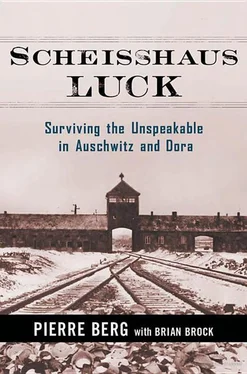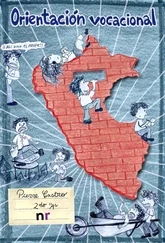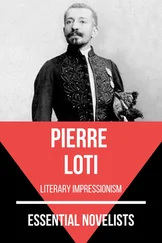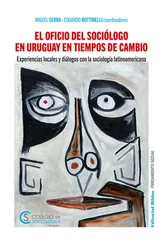Nothing was visible except his powerful hands with those short, square fingers. When he let go there was a ripping sound. I threw myself down and looked through the hole. The back of Jonny’s tight-fitting leather jacket had snagged on a lantern hook and he was swinging from it like a puppet. He tried to release himself, but his arms couldn’t reach the hook. He thrashed about as if he were drowning in the ocean.
“What happened?” I heard someone ask.
“He’s caught on something!”
Jonny’s heavy body tipped, throwing his head inches from the track. I leaned out the hole. It was pitch black. The rattling and screeching of the steel wheels was deafening. The icy wind stung my face. My eyes watered and my nose began to burn as I fought to unhook him. I pulled with everything I had, but Jonny’s jacket held fast.
The train gathered speed. The cars banged together, then jolted apart, threatening to throw me out. I caught hold of Jonny’s legs. Someone grabbed an ankle. I took the other, but before we could hoist him up, his body gave a sharp jerk. Jonny shrieked, a cry of agony that faded into a guttural moan. I grabbed his twitching legs. It was a strange and sickening sensation. I pulled with all the strength I had. Someone took hold of his trousers. His suspend-ers broke. From all directions hands reached out. His legs were in.
More hands came. Jonny’s jacket and shirt peeled over his head as we finally lifted his upper body through.
Everyone gathered around as we laid Jonny on the cold floor. I stripped off the bloody jacket and shirt that covered his face like a shroud. Once full of laughter, his blue eyes were now fixed and slightly protruding. A thin stream of blood trickled from a deep gash at the base of his skull and disappeared through a gap in the floor. Great brown clots formed in his ears. How did this happen?
Someone said that Jonny’s head must have struck a switching rail.
An old doctor from Toulouse bent over and examined the wound.
“Nothing we can do,” he shook his head. “There’s a fracture at the base of his skull.”
I knelt beside Jonny and carefully dabbed at the wound with his shirt. You’re strong, hold on. Fight. That’s what I wanted to say as his breathing became increasingly jerky and irregular, but I couldn’t utter a word. No one spoke. There were no poetic words or reassuring Bible passages that would give Jonny any solace as he endured the final strangulation of his life. His death rattle brought me to my feet. Consumed with grief and guilt, I let go of his bloody shirt and flopped down by the door.
The smoky kerosene lantern hanging from the ceiling swung in rhythm with the rails, throwing fantastic shadows on the walls. It cast a shifting yellow glow over Jonny’s slack face. When the light fell on the living, all I saw was dismay and bewilderment. Everyone had looked up to Jonny. I’m sure we all believed he was the one who could survive anything the Nazi had in store. I closed my eyes.
What had Jonny thought when I refused to go? Did he think I was afraid? Did he perceive it as misplaced politeness, or did he realize Stella was holding me back? His last look at me had been angry, but not scornful. I would have liked to explain to him. I would have liked to ask his pardon, his forgiveness, but even if I had jumped, that hook would have still snagged him.
I opened my eyes. The train was now traveling at a dizzying speed. Wind howled through the hole, swirling straw and sawdust over Jonny’s body. I got up and closed the hole with the broken planks.
♦ ♦ ♦
I awoke with my heart racing. I had been dreaming that I was in the middle of a bombing raid. My body relaxed when I realized that the explosions were the train cars passing over a bridge. Painfully I stood up. The stink of unwashed bodies and excrement hung thick in the car. We had been riding for three days.
I went to one of the windows and opened my mouth wide, hoping that a little moisture might condense in it. Dark green clumps of pines enlivened the gray landscape speeding by. Here and there patches of snow clung to the hillsides. From the architecture of the houses and the onion-shaped steeples of the church towers in the distance I could tell we were heading into Poland. We had crossed through Germany, and that meant we weren’t being delivered to Dachau, Buchenwald, or Sachsenhausen. Where the hell were we going? What was in Poland other than Jewish ghettos? Maybe we were going even farther. Could we be slave laborers meant for the Eastern Front? Looking at my fellow prisoners I thought, how could any of us survive a Russian winter?
When the train finally stopped at a station, every man, woman, and child in the cattle cars screamed for water. The Nazis hadn’t given us anything more to drink or eat. The bucket of water they put in our car in Bobigny had quickly been emptied. How could we have known that they wouldn’t refill it? We implored our guards, but to no avail. The civilians on the platform turned a blind eye except for one well-dressed gentleman who approached an adjoining car with a hot beverage. Before he could reach an outstretched arm, a guard slapped the cup out of his hand.
“ Umdrehen, das sind Dreckjuden !” (Turn around, they’re dirty Jews!)
There was a hospital train parked on the other track. Medical corpsmen in white uniforms scurried back and forth in coach cars crammed with wounded men on gurneys stacked on three tiers.
Looking out his window, a soldier with a bandaged forehead gave me a friendly wave, no doubt thinking that I was one of his compa-triots heading to the front. Oh, how I envied him, all of them. They were suffering physically, but they were being well cared for and they knew where they were going.
I couldn’t help but think of Jonny, whose body was now lying miles behind us. An hour after his death, someone said the Kaddish in Hebrew, then Father Tonanti, an old Catholic priest, stepped forward. Though he was a man of the cloth, I respected him greatly.
The priest and I had had long philosophical conversations in Drancy, but he couldn’t make a believer out of me nor could I convert him to atheism.
“Since we pray to the same God, let me pray for his soul.”
As he prayed for Jonny, the priest’s accent, full of the sunshine of Provence, warmed me for a moment. With his amen, the planks were lifted and Jonny’s body was lowered through the hole.
Father Tonanti was now sitting in a corner. His eyes were closed and his lips moved almost imperceptibly. He was praying, his hands mechanically counting the beads of an imaginary rosary.
He was in the cattle car because of his blind devotion to humanity.
One of his parishioners, a member of the far-right Croix-de-feu, had gotten wind that he was providing refuge for a handful of Jewish toddlers. The man threatened to turn the priest over to the Gestapo if he didn’t surrender the children. He stood to gain a hefty bounty for those Jewish orphans. The enraged priest chased him out of the church, but before the children could be shepherded to a safe haven the man returned with some of his fascist cronies.
Father Tonanti’s strength of conviction and faith humbled me. As the train started up again, I pondered whether I would have the strength to hold on to my humanity.

PART II
AUSCHWITZ

CHAPTER 5
I leaned my head against the car’s rough wood wall and realized that the train wasn’t moving. I was perplexed. How long have we been parked here, I asked myself. When did we stop? I hadn’t dozed off. I struggled to focus my thoughts, but my head was as thick as jellied consommé. I had lost all perception of time and couldn’t say with any certainty how many days we had been traveling. The dying flame of the kerosene lantern lit the dull eyes of the zombies around me. How could these be the same men who sang so defiantly in the courtyard? The lack of food and water had ravaged us to near inertia.
Читать дальше













